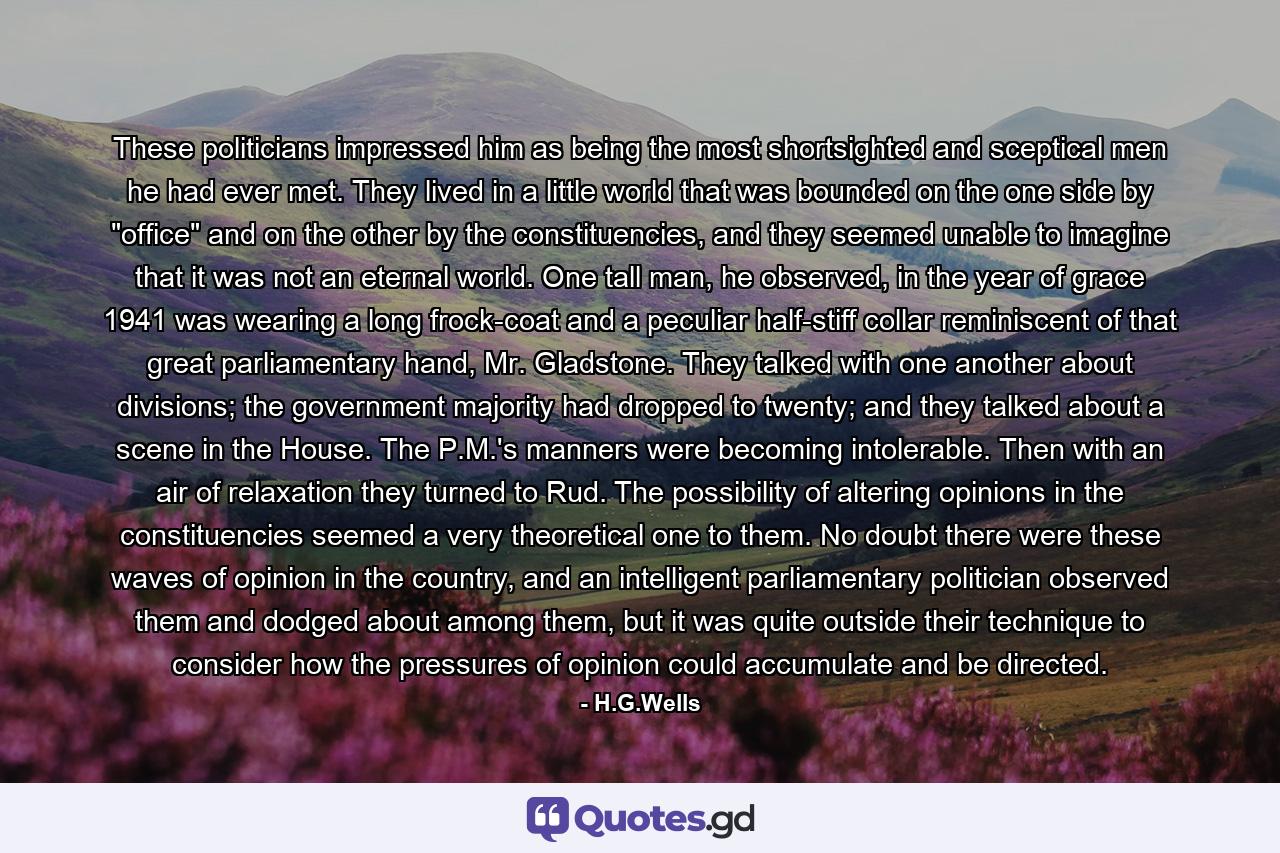These politicians impressed him as being the most shortsighted and sceptical men he had ever met. They lived in a little world that was bounded on the one side by “office” and on the other by the constituencies, and they seemed unable to imagine that it was not an eternal world. One tall man, he observed, in the year of grace 1941 was wearing a long frock-coat and a peculiar half-stiff collar reminiscent of that great parliamentary hand, Mr. Gladstone. They talked with one another about divisions; the government majority had dropped to twenty; and they talked about a scene in the House. The P.M.’s manners were becoming intolerable. Then with an air of relaxation they turned to Rud. The possibility of altering opinions in the constituencies seemed a very theoretical one to them. No doubt there were these waves of opinion in the country, and an intelligent parliamentary politician observed them and dodged about among them, but it was quite outside their technique to consider how the pressures of opinion could accumulate and be directed.
